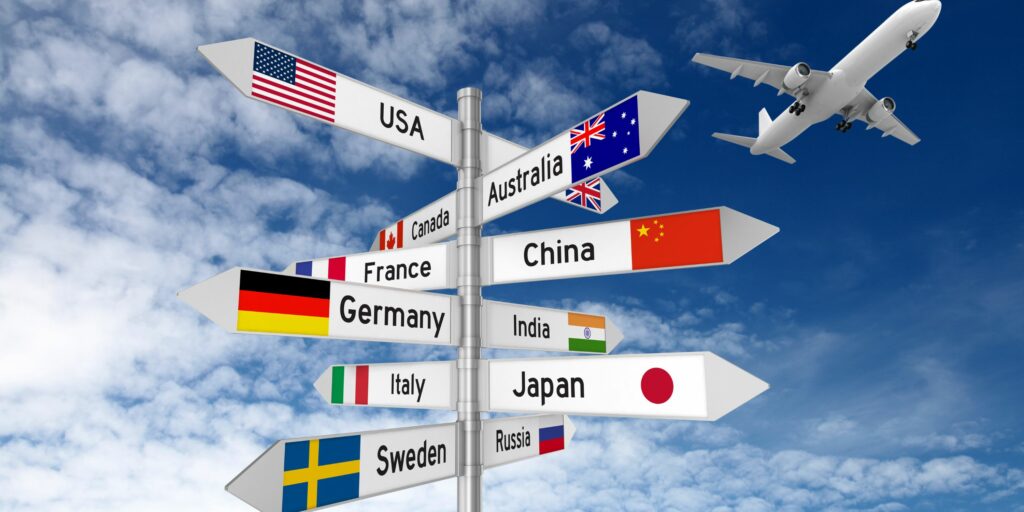Are you traveling to China soon? As international travel resumes after the COVID-19 pandemic, many US travelers are looking to visit China. There are several considerations and preparations to make before embarking on your next China trip.
China COVID-19 Travel Testing Requirements
Primarily, it is crucial to stay up to date with the latest travel restrictions and requirements imposed by the Chinese government. As of April 29, 2023, travelers to China are no longer required to present a PCR (Polymerase Chain Reaction) test prior to departure. Instead, a negative result from a rapid antigen COVID-19 test taken within 48 hours (about 2 days) before boarding the flight is mandatory.
My Care Labs offers rapid antigen tests at no cost to you out of pocket.* As a CLIA lab, we also provide certified reports for both antigen and PCR testing, so you have total peace of mind for entry into China regardless of the status of testing requirements there, or any other country. These requirements will change over time with each pandemic. Finally, by testing yourself, you keep yourself and other safe while traveling.
Getting Sick While Traveling in China
Travel can be stressful sometimes, which can weaken your immune system. Every country has its own “bugs” so to speak – diseases, parasites, bacteria, and street food-borne illnesses. China has different sanitary conditions and climate compared to the US, too. Despite your best efforts to stay healthy while traveling, there is always a chance of falling ill – in any country. In such cases, it is essential to know where to seek medical help. Major cities in China have hospitals and clinics with English-speaking doctors that can provide quality medical care. However, it is important to note that medical expenses in China can be steep, especially if you are uninsured. It is advisable to have comprehensive travel health insurance that covers medical emergencies, including medical evacuation if necessary.
Hospital and Clinic Availability and Costs
China has a range of medical facilities, from small clinics to large hospitals with state-of-the-art equipment. The costs of medical care vary depending on the type of facility and the services provided. Medical expenses in China are lower than in the US, but the quality of care may differ. Pharmacies are widely available throughout China, and most medications can be bought over the counter without a prescription.
Lab Testing Options
If you require laboratory testing while in China, you can visit one of the many diagnostic laboratories across the country. The turnaround time for test results is usually within 24-48 hours (about 2 days). However, it is important to note that not all laboratories may have English-speaking staff, so it is advisable to bring along a translator or a Chinese-speaking companion.
Typical US Health Insurance Coverage
Many US health insurance plans offer limited coverage for medical expenses incurred while traveling abroad. Before traveling to China, review your health insurance policy to understand what is covered and what is not. Consider purchasing additional travel health insurance to ensure comprehensive coverage during your trip.
Places to See, Things to Do, and What to Eat and Drink
China is a vast and diverse country, with plenty of sights to see, activities to do, and culinary experiences to indulge in. From the Great Wall of China to the Terracotta Warriors of Xi’an, China offers a plethora of cultural and historical landmarks to explore. Foodies can enjoy a variety of regional cuisines, including Sichuan, Cantonese, and Shanghainese, among others. Drinking tap water in China is not recommended, so it’s important to stick to bottled water and avoid ice in drinks.
Travel resources for China**
- TripAdvisor: Things to Do in China
- US State Department China International Travel Information
- China Travel Resources | Save Time & Money
- Google: More China Travel Resources
Commentary on Sanitation
China has made significant strides in improving its sanitation and hygiene standards in recent years. However, travelers should still exercise caution and take necessary precautions to prevent the spread of infectious diseases. Wash your hands frequently with soap and water, avoid touching your face, and wear a mask in crowded places.
Diseases from Eating Street Food
While street food in China is delicious and often inexpensive, it can also pose a risk of foodborne illness. Common diseases associated with street food consumption in China include diarrhea, typhoid fever, and hepatitis A. To reduce the risk of foodborne illness, stick to food vendors that have a high turnover of customers, avoid undercooked or raw foods, and ensure that hot foods are served steaming hot.
My Care Labs Testing Services
At My Care Labs, we offer comprehensive COVID-19 testing services for travelers to China. A few benefits of our medical testing:
- Our Rapid Antigen and PCR COVID-19 tests both meet the requirements set by the Chinese government for entry into the country.
- Both testing types are $0 to patients with insurance
- You receive a CLIA-certified internationally accepted report






